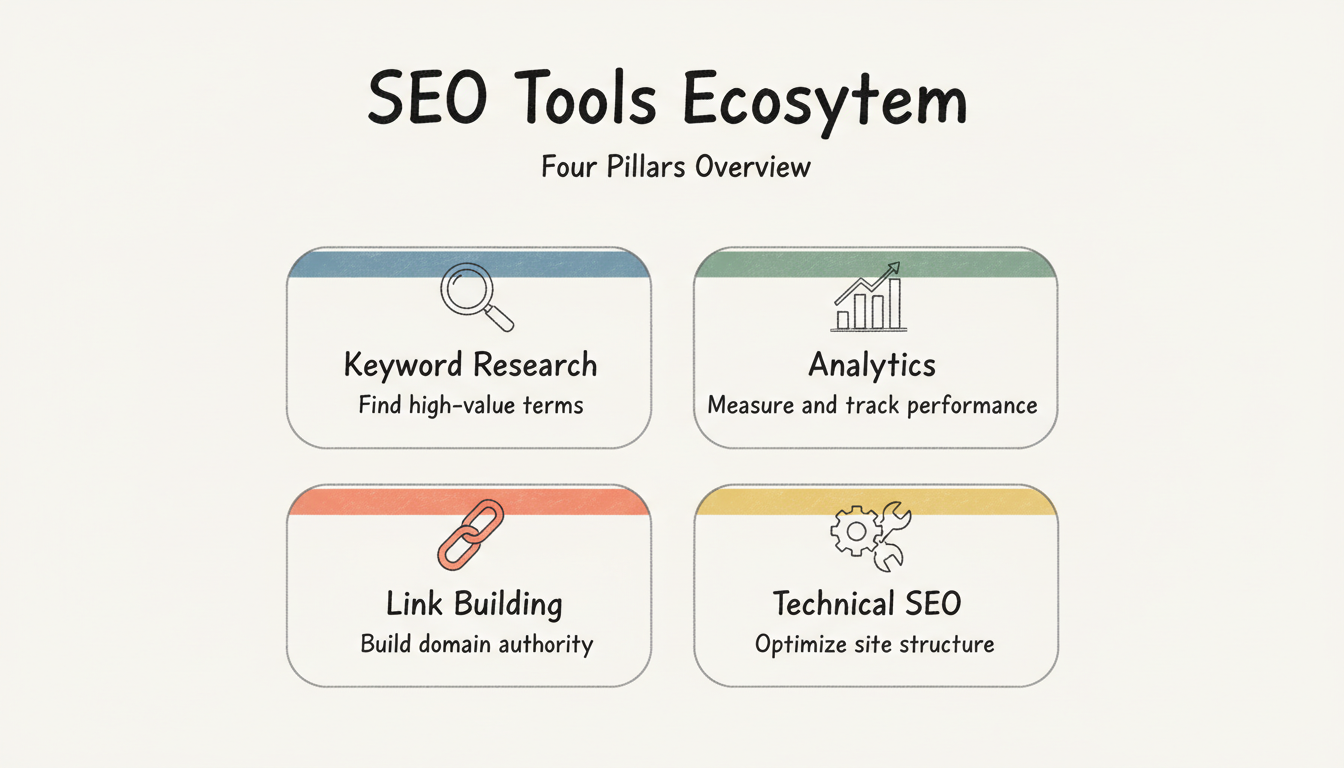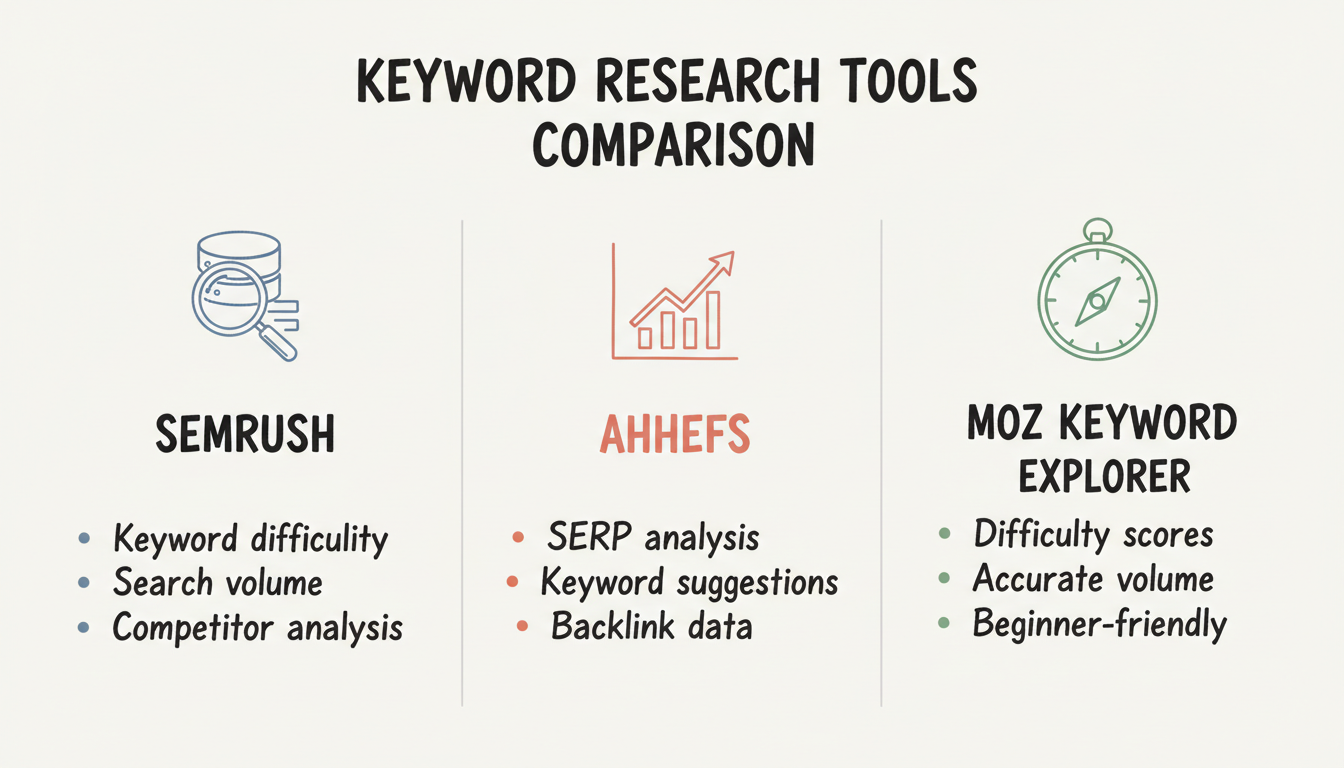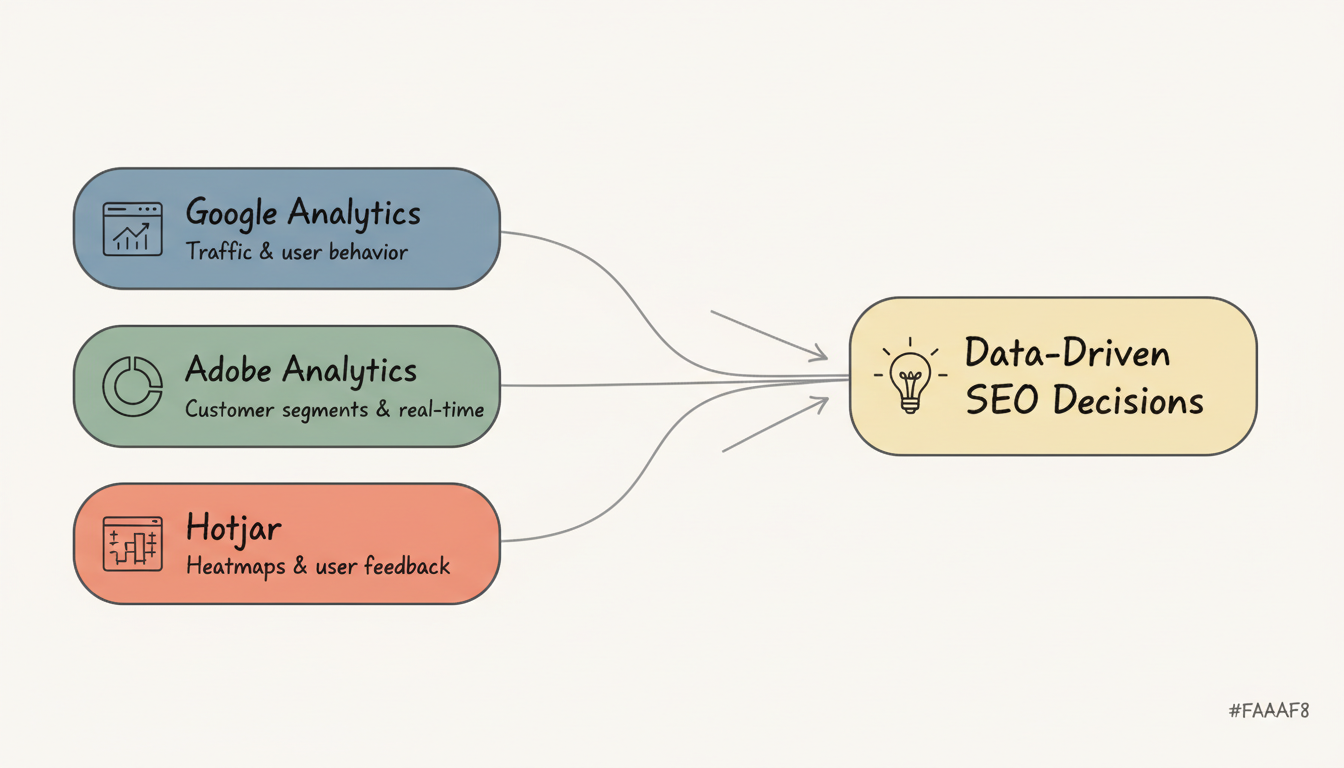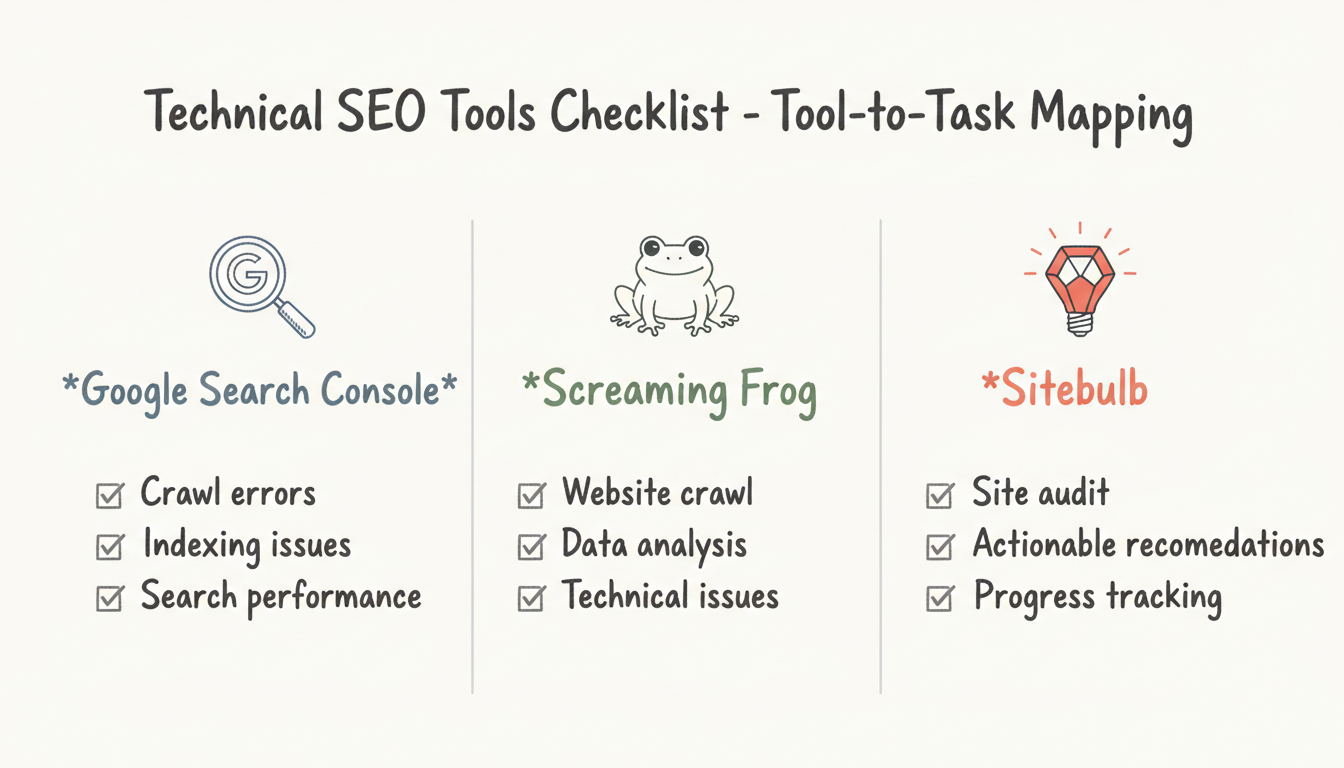In the ever-changing world of search engine optimization (SEO), it's essential for experts to stay on top of the latest tools and techniques. With each passing year, new trends emerge, algorithms evolve, and competition gets fiercer. To navigate this dynamic landscape successfully, SEO experts must equip themselves with the right tools.
SEO has come a long way since its inception. The days of simple keyword stuffing and link farming are long gone. Modern SEO requires a comprehensive approach that encompasses various aspects, such as keyword research, analytics, link building, and technical optimization. To perform these tasks efficiently, experts rely on a range of tools that streamline their workflow and provide valuable insights.
One of the key aspects of modern SEO is understanding the evolving landscape of the industry. Over the years, SEO has evolved into a multifaceted discipline. It's no longer just about optimizing web pages for search engines; it's about understanding user intent, providing valuable content, and building authority. These factors, along with many others, contribute to a website's ranking on search engine results pages (SERPs).
With the ever-changing algorithms of search engines, staying ahead of the competition is crucial. This is where SEO tools come into play. These tools help experts analyze data, identify opportunities, and track progress. They provide valuable insights into keywords, competitor analysis, site audits, and more. Without these tools, SEO experts would be left to rely on guesswork, wasting precious time and resources.
Keyword research is a fundamental aspect of SEO. By using SEO tools, experts can identify the most relevant and high-performing keywords for their target audience. These tools provide data on search volume, competition, and trends, allowing experts to make informed decisions about their content strategy.
Competitor analysis is another crucial component of SEO. By using SEO tools, experts can gain valuable insights into their competitors' strategies and performance. They can analyze backlinks, content, and rankings to identify areas of improvement and opportunities for growth.
Site audits are essential for identifying technical issues that may be hindering a website's performance on search engines. SEO tools provide comprehensive site audits that analyze factors such as site speed, mobile-friendliness, and crawlability. By addressing these issues, experts can improve their website's visibility and user experience.
Link building is a vital aspect of SEO, and SEO tools can simplify the process. These tools help experts find relevant and authoritative websites for link building opportunities. They provide data on domain authority, backlink profiles, and anchor text distribution, allowing experts to build high-quality links that improve their website's authority and visibility.
Analytics play a crucial role in measuring the success of SEO efforts. SEO tools provide comprehensive analytics reports that track key metrics such as organic traffic, conversion rates, and bounce rates. By analyzing these metrics, experts can assess the effectiveness of their strategies and make data-driven decisions for future optimization.
In conclusion, SEO tools are essential for success in the ever-evolving landscape of SEO. They provide valuable insights, streamline workflows, and help experts stay ahead of the competition. From keyword research to competitor analysis, site audits, and analytics, these tools empower SEO experts to make informed decisions and optimize their websites for maximum visibility and performance.

Keyword research forms the foundation of any successful SEO campaign. By understanding what keywords and phrases potential customers use, experts can optimize their content to rank higher in relevant search queries.
Keyword research is a crucial step in the SEO process. It involves identifying and analyzing the keywords that are most relevant to a website's content and target audience. By conducting thorough keyword research, SEO professionals can gain valuable insights into the search behavior of their target audience and optimize their website accordingly.
The Role of Keyword Research in SEO
Keyword research helps experts identify high-value keywords with sufficient search volume and low competition. By targeting these keywords strategically, they can attract organic traffic to their websites and generate leads.
Keyword research also plays a vital role in content creation. By understanding the keywords that potential customers are using, SEO professionals can develop relevant and engaging content that addresses their needs and interests. This not only helps in improving search engine rankings but also enhances the overall user experience.
SEMrush offers a wide range of features that make keyword research a breeze. Its keyword database is constantly updated, ensuring that users have access to the most accurate and up-to-date information. The tool also provides detailed analytics and reports, allowing SEO professionals to track their keyword rankings and monitor their website's performance.
Ahrefs is known for its robust keyword analysis capabilities. The tool provides detailed information on keyword search volume, difficulty, and competition. It also offers advanced features like keyword suggestions, SERP analysis, and backlink analysis, making it a valuable asset for SEO professionals.
Moz Keyword Explorer is designed to make keyword research easy and efficient. The tool provides accurate search volume data, allowing users to identify keywords with high search demand. It also offers keyword suggestions based on relevance and popularity, helping users discover new keyword opportunities. Additionally, Moz Keyword Explorer provides difficulty scores, which indicate how challenging it would be to rank for a particular keyword.
In conclusion, keyword research is an essential aspect of SEO. By using the right keyword research tools, SEO professionals can gain valuable insights into their target audience's search behavior and optimize their website accordingly. Tools like SEMrush, Ahrefs, and Moz Keyword Explorer offer a wide range of features that simplify the keyword research process and help in achieving better search engine rankings.

Analytics play a crucial role in measuring the success of SEO strategies. By monitoring various metrics, experts can assess the performance of their campaigns, make data-driven decisions, and identify areas for improvement.
Data provides valuable insights that help experts understand how users interact with their websites. By analyzing user behavior, traffic sources, and conversion rates, they can optimize their strategies to achieve better results.
For example, by analyzing user behavior through analytics tools, SEO experts can determine which pages on their website are most popular and engaging. They can see how long users spend on each page, which links they click on, and which actions they take. This information allows experts to identify areas where users may be dropping off or experiencing difficulties, and make necessary improvements to enhance the overall user experience.
In addition, analytics tools provide valuable data on traffic sources. Experts can see where their website traffic is coming from, whether it's from search engines, social media platforms, or other referral sources. This information helps them understand which channels are driving the most traffic and which ones may need more attention. By focusing on the most effective channels, experts can allocate their resources more efficiently and maximize their SEO efforts.
Furthermore, conversion rates are a critical metric that analytics tools can measure. Experts can track how many visitors take a desired action on their website, such as making a purchase, filling out a form, or subscribing to a newsletter. By analyzing conversion rates, experts can identify any bottlenecks in the conversion process and implement strategies to improve them. This could involve optimizing landing pages, simplifying checkout processes, or refining call-to-action buttons.
Google Analytics offers a wide range of features that allow experts to delve deep into their website's performance. They can track the number of sessions, pageviews, and unique visitors, as well as analyze the bounce rate and average session duration. The tool also provides valuable demographic information about website visitors, such as their age, gender, and interests. This data helps experts tailor their content and marketing strategies to better target their audience.
With Adobe Analytics, experts can segment their website visitors based on various criteria, such as geographic location, device type, or referral source. This allows them to analyze the behavior and preferences of different customer segments and tailor their marketing efforts accordingly. The tool also provides real-time data, enabling experts to monitor website performance and make immediate adjustments if necessary.
Hotjar's heatmaps provide visual representations of user behavior, showing where users click, scroll, and spend the most time on a webpage. This helps experts identify areas of interest and optimize their website layout and content placement. Additionally, Hotjar's survey feature allows experts to gather direct feedback from users, gaining insights into their preferences, pain points, and suggestions for improvement.
In conclusion, SEO analytics tools are essential for monitoring and optimizing SEO strategies. By leveraging data, experts can gain valuable insights into user behavior, traffic sources, and conversion rates. This information empowers them to make data-driven decisions, improve user experience, and drive better results.

Link building plays a vital role in SEO. High-quality backlinks strengthen a website's authority and improve its visibility in search engine results. SEO experts rely on specialized link building tools to find link opportunities, manage outreach, and analyze link profiles.
Backlinks are like votes of confidence from other websites. When reputable sites link to yours, search engines see it as a signal of trust and relevance. The more quality backlinks your website has, the higher its chances of ranking well on SERPs.
Technical SEO refers to the process of optimizing websites for search engine bots. It involves tasks such as improving site speed, ensuring mobile-friendliness, and fixing crawl errors. Technical SEO tools automate these tasks, saving experts time and ensuring their websites are optimized for search engines.
No matter how great your content is, it won't rank well if your website has technical issues. Search engines prioritize sites that are fast, secure, and user-friendly. By addressing technical SEO elements, experts create a solid foundation for their SEO efforts.

In conclusion, SEO is a complex field that requires keeping up with the latest tools and techniques. The five essential tools mentioned above – keyword research tools, SEO analytics tools, link building tools, and technical SEO tools – are crucial for every SEO expert's success in 2023. By utilizing these tools effectively, experts can stay ahead of the competition and achieve better results for their clients or businesses.
By submitting this form, you agree to our Privacy Policy and Terms & Conditions.